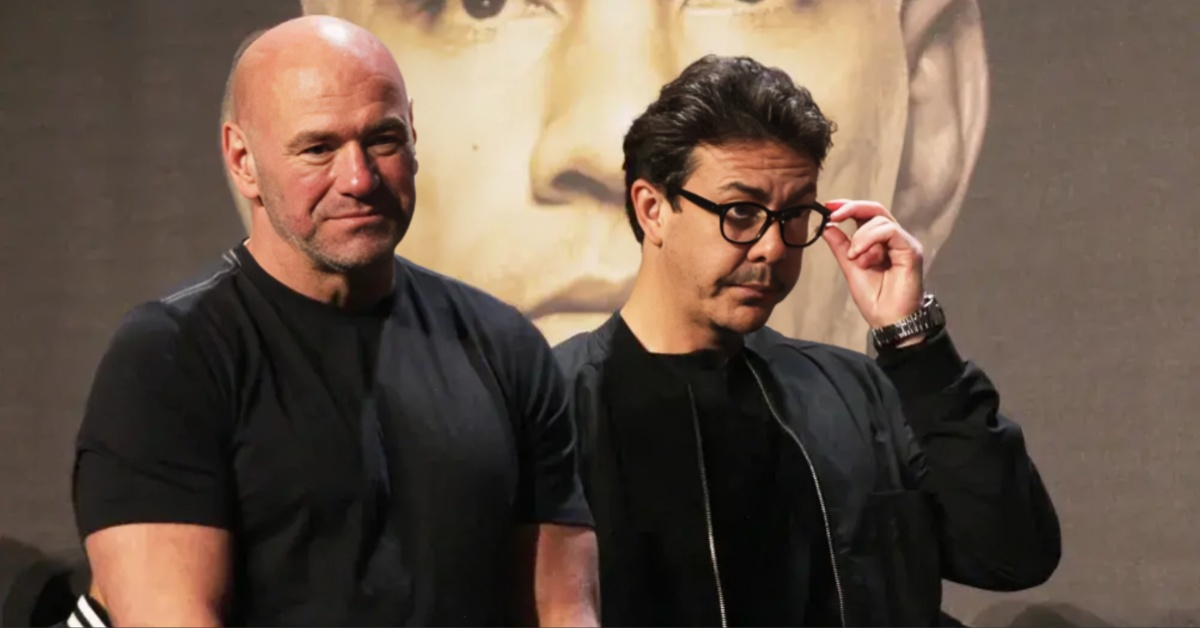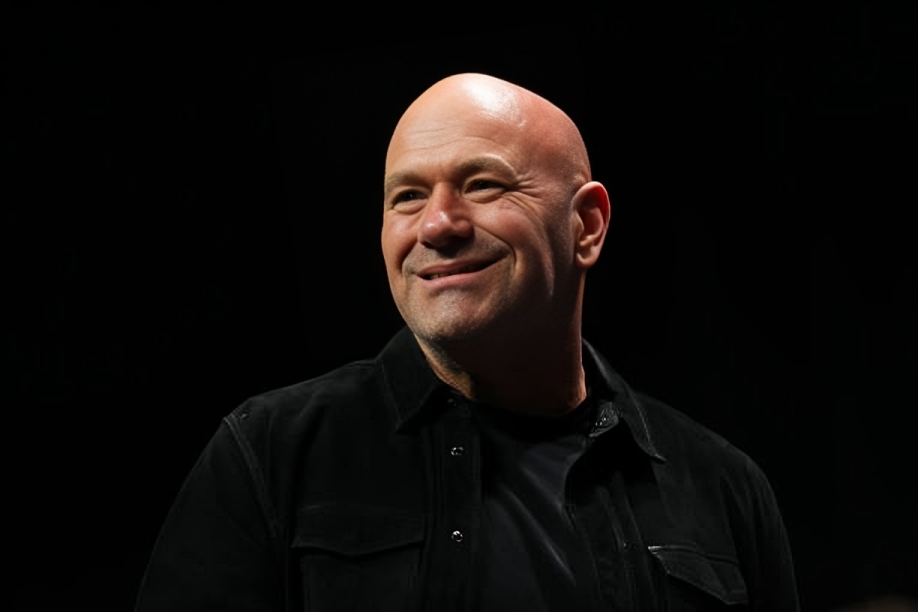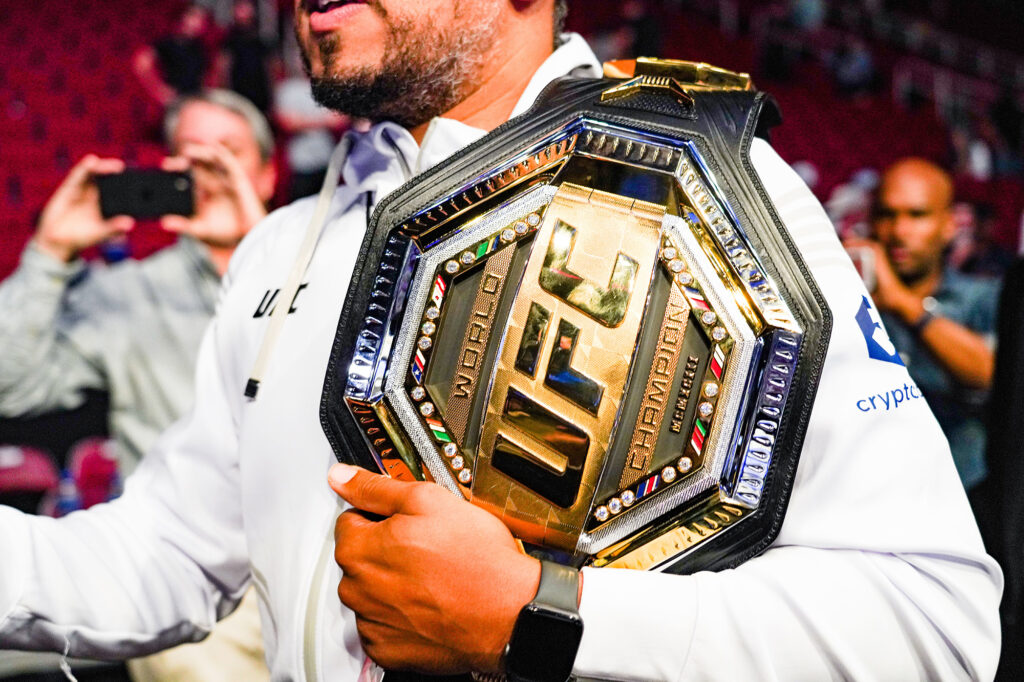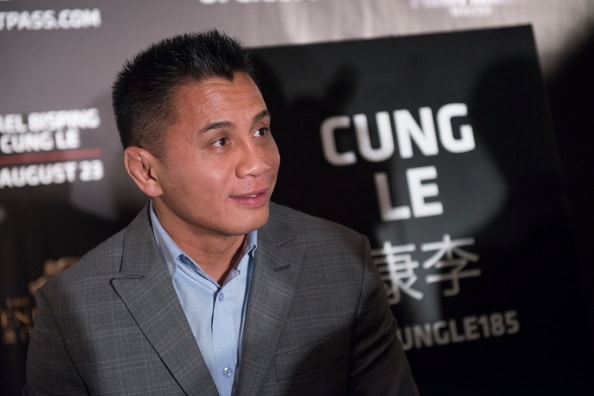
Months after UFC was nearing a deal that would potentially free them from facing accusations of antitrust practices in a legal setting ever again, they will soon find out if that beneficial agreement will actually come to fruition.
Earlier this year, the promotion was ready to cut a check worth $335 million and agree to some contractual changes in exchange for eliminating a pair of class action lawsuits representing groups of fighters. This deal, while in the nine-figures, was significantly less than the potential billions of dollars that a lawsuit would cause in damages. And due to a waiver in newer UFC contracts that prevents fighters from ever entering into class action lawsuits, the payment would mark an end to the possibility of fighters banding together to challenge the MMA goliath’s power.
The agreement was seen as the possible end to a decade-long battle in the sport. But in recent weeks the deal has seemingly come close to falling apart, as signaled by comments made by U.S. Nevada District Judge Richard F. Boulware.
Despite the settlement from the UFC being agreed upon by both plaintiff classes—the Cung Le et al. group representing talent from 2010 to 2017 and the Kajan Johnson et al. group for fighters who competed from 2017 to 2023—and the UFC, an important third party must also sign off on a class action deal in American court cases: The Judge. And in this scenario, Judge Boulware has shown significant concern about the deal.

Alarm bells first sounded in June, when the Nevada judge first voiced his “serious concerns” about the agreement. Some alterations were made to the deal later that month in hopes of appeasing the judge, who mentioned that the Le class was not getting enough in comparison to the $800 million to $1.6 billion they looked to earn in damages from a trial.
As reported by John S. Nash, the adjusted deal would give the Le group 90 percent of the cash damages, up from the 75 percent they were guaranteed in the previous deal. This seemingly did little to impress Judge Boulware, who appeared in a courtroom once again last week to list off a series of qualms he had with the proposal.
After a few weeks of discussion between the judge and the parties involved, Josh Gross is reporting that we’re expected to hear his decision on the deal this week. The ruling is a turning point in the legal battle, either putting an end to the saga or simply beginning a new chapter.
The Judge Doesn’t Seem Convinced
Due to both the financial details and the brief injunctive relief that is placed into the agreement, Judge Boulware has explicitly shown significant hesitancy. Canadian lawyer and Combat Sports Law writer Erik Magraken said while we don’t know what the Judge will decide, it’s not entirely shocking that he has given some pause regarding the deal.
“The judge is of a very strong view that the UFC is operating as an illicit monopsony,” Magraken said. “And now he’s being asked to approve a settlement that’s gonna resolve two class actions, which basically are gonna lock in the UFC into a position of power. The judge is struggling with that outcome. So to me, it’s not terribly surprising that he’s hesitant to sign off on it.”
Judge Boulware has expressed concern about the contractual changes that UFC is forced to abide by in the agreement, arguing it might not be enough to clamp down on the promotion. Courthouse News reported that he specifically said “It is difficult for me to understand why, if Johnson were settling separately, that class members would agree to this amount of injunctive relief.”
When asked about the reason for Judge Boulware’s concern about the changes, Magraken explained how class action cases look not just at the past but toward the future. He highlighted that the importance of a class action case is to bring relief to those wronged in the past while also setting up safeguards that stop the issue from happening again in the future.

“One of the purposes of antitrust litigation is not just to compensate people that are harmed by the bad behavior, but it’s to then disrupt that bad behavior,” Magraken explained. “To make it so it can’t be done moving forward. I think the court is simply concerned that once the money changes hands, the UFC is free to keep doing this monopsonistic behavior. And since the fighters have given up their rights to participate in a class action moving forward [due to the class action waivers signed], there’s not going to be a challenge from the labor side of things.”
Revisiting The Possibility of a Trial

Prior to the settlement, the Le class was just weeks away from heading to a jury trial against the UFC. The Johnson case was still looking for class certification, a crucial step needed before heading to trial.
If Judge Boulware decides to reject the settlement, discussions about a possible trial in the future will re-emerge. Magraken explained that this is a potentially riskier scenario for everyone involved: The damages could be higher, including the trebling of financial payouts which is seen in antitrust cases. But also high is the possibility that no money could change hands.
“What does a good day in court look like [for the fighters]? We’ve got the numbers: $1.6 billion being the plaintiff’s high-end estimate of damages, and then that gets tripled … The bad day in court is when it gets dismissed. You’ve got 10 years of litigation and the jury for whatever reason doesn’t buy it, or gives very very low numbers.”
Jury trials are, as Magraken described, unpredictable. It takes just one jury member to throw everything off-course, causing a result that might be unexpected. This explains why jury selection can often be picky by both sides of a lawsuit. Take for example the recent high-profile case where Donald Trump was found guilty of falsifying business records. In that specific scenario, the lawyers looked at 96 New York citizens before finalizing their seven-person jury.
“It’s really tough to know what a handful of strangers off the street in Las Vegas will think of all of this. It’s a complicated case. You’re getting into contracts, you’re getting into economic evidence, you’re getting to a lot of stuff that people don’t deal with in their day-in-day-out lives.”
A decision from Judge Boulware, which reportedly is set for next week, will answer the long-awaited question of whether a settlement can be possible. The deal could get approved, which Magraken said would “lock in UFC’s position of power.” Or the agreement could get called off, putting the fate of a couple of thousand fighters back into the courtroom.